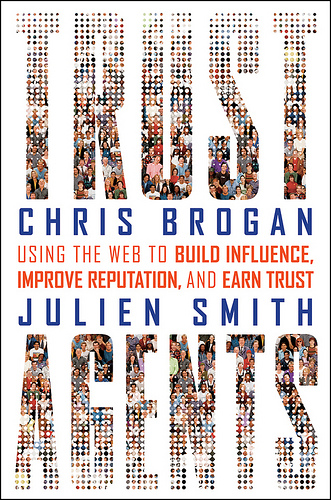The following is excerpted from Trust Agents: Using The Web To Build Influence, Improve Reputation, and Earn Trust by Chris Brogan and Julien Smith

Jeff Pulver knows a thing or two about dial tone. A while back, he cofounded Vonage, the voice-over-IP telephone network that took on all the major telephone companies in the late 1990s. He continues to be a visionary, usually discovering key trends years before anyone else even knows there should be a trend there to discover. But we’re going to give you one of his ideas now, and maybe you can bring it into your thoughts for the future.
In the old days, distribution was always the gate. You might be talented, but you weren’t going to be on TV. You might be a decent writer, but there’s only so much space in the newspaper, and even less in the book publishing world. The same was true with communication.
The U.S. government and other governments put the tele- communications industry under their watchful eye upon its creation, including regulation and also protection. Though this had some bene?ts and nurtured the growing communications networks, it also meant that competition was off the table. Voice over IP (VoIP) brought back an opportunity for competition by allowing people to use the Internet to complete voice conversations without the use of traditional dial tone and telecom company circuits.
Extrapolate this out to where social software has taken com- munications. With nothing more than Facebook, the average person can send text, audio, video, and other forms of messages between friends. Think about how this applies to mobile commu- nications as well. The United States came later to the ubiquitous use of smart phones compared to the United Kingdom (let alone South Korea and the rest of eastern Asia), but that ground has quickly been recaptured by others.
Bringing your own dial tone is a powerful consideration when you think about building armies. It means that we now have the tools—and many of them—to communicate directly to empowered networks of passionate supporters. It’s one of the reasons Barack Obama won the U.S. presidency in 2008: He had access to a mobile, active, wired constituency, whereas the opposing campaign worked almost entirely through landline phone campaigning.
This doesn’t always mean creating your own social network, but rather, you’d do well to be able to use the various communications tools of the Web and understand how they reach your potential customers, your employees, your peers, and your champions.






